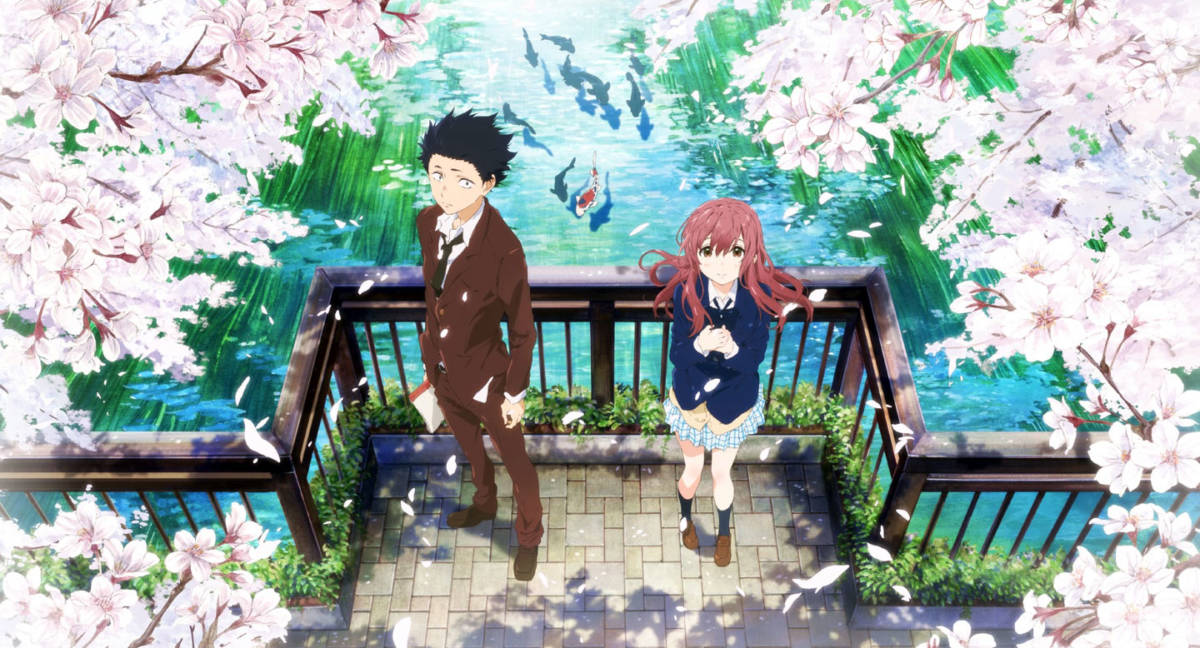After the release of Your Name late last year, I wasn’t expecting another anime of its calibre to arrive for a long time. Well, I am glad to say I was wrong. Koe no Katachi is a gorgeous and careful portrayal of two important issues: depression and how uncaring society can be towards people who have physical impairments.
The film begins with Nishimiya Shouko, a young girl who has just been transferred to a new school, introducing herself to her new class. At first, they are interested in getting to know her and learning more about her disability, but soon this novelty wears off and they lose interest.
This interest slowly transforms into resentment – Shoya’s new classmates perceiving her disability as a form of privilege. As they are only young children, it is hard for them to understand why she struggles to do certain things, mocking her back as she completes tasks.
It only becomes more heartbreaking as the sensitive Shouko always smiles and asks to be friends with these same students.
The worst offender was a popular boy called Ishida Shouya who progressively became crueller towards her while they were at school together.
Eventually, Shouko’s mother decides to pull her out of school after becoming aware that she was being bullied. The principal scolds the children, causing them to only now realise the consequences of their actions.
This is where the film really starts to shine as we get to watch how the bully can quickly become the bullied. The once popular Shouya has now been labelled as a thug and his classmates avoid talking to him for this reason. Each of his classmate’s faces have a large blue X over them, representing their decision to ostracize him.
https://www.youtube.com/watch?v=Ivrq1ZwsRps
It would have been easy to turn this story into a tale of redemption, but the director, Naoko Yamada, is far too talented to allow the story to become trite and cloyingly sentimental.
Not long after the film starts, depression becomes a key theme, highlighting the fragility of mind of the two main characters. It is a beautiful narrative that shows how two different people can both suffer from depression without realising the pain the other is feeling.
Shouya feels undeserving of love or friendship – a punishment he gave himself for his past actions. His only desire is to make the life of Shouko a little easier. Slowly, they become friends and his life starts to once again gain colour.
However, not once does the film ever present guilt or repressing thoughts as something that can go away easily. Our feelings are not always working with us, nor are outcomes always perfect. That is an unfortunate, bittersweet reality of life.
The film is backed up by a soundtrack that is less upbeat than another film of a similar ilk, Your Name, but it serves a purpose equally well. Kensuke Ushio has orchestrated a beautifully minimalistic score where the emotional gravitas of key scenes is elevated through sombre piano arrangements. Only once during the film does the music stand out and it does so for an important reason, enhancing an important scene towards a well-earned crescendo.
Equally, I rarely paid attention to the visuals during the film as I was engrossed in the story of Shouya and Shouko, but it is incredibly potent.
The characters are drawn using sun-washed water colours that contrast with the sharp, often hyper realistic backgrounds. It is effective as it draws the viewer into focusing on the characters faces, making it easier to take in nuanced expressions that carefully conveys their thoughts and feelings.
By the time the film comes to a close, I feel emotionally exhausted. This is an emotional rollercoaster wrapped in a film but one that comes to a satisfying conclusion after 130 minutes.
A few months ago, I wrote a piece about how film and television rarely covers depression in an accurate or tactful way and I am glad to say we now have another beautiful piece of cinema that covers this theme with the sensitivity it deserves.
Some of the coverage you find on Cultured Vultures contains affiliate links, which provide us with small commissions based on purchases made from visiting our site. We cover gaming news, movie reviews, wrestling and much more.



